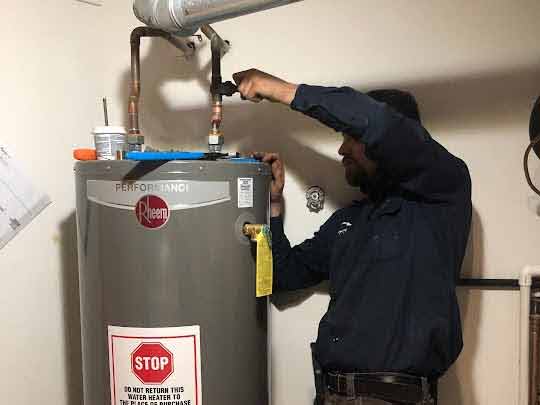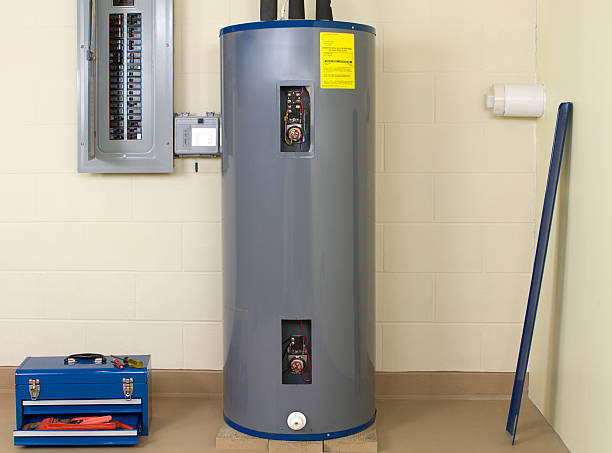
Water heaters are essential for providing hot water in our homes. However, like any other appliance, they have a limited lifespan. It’s important to be aware of the signs that your water heater might be reaching the end of its life and be prepared for a replacement. In this article, we will discuss some key indicators that your water heater is telling you it’s time for a replacement.
1. Age of the Water Heater
One of the first things to consider is the age of your water heater. On average, a traditional tank-style water heater can last between 8 to 12 years, while tankless models can last up to 20 years. If your water heater is approaching or has exceeded its expected lifespan, it’s a good idea to start thinking about a replacement. Even if it’s still functioning, an older water heater is more prone to breakdowns and can become less efficient over time.
2. Rusty or Discolored Water
If you notice rusty or discolored water coming out of your faucets, it could be a sign that your water heater is deteriorating from the inside. Over time, sediment builds up in the tank causing corrosion. This can result in rusty or discolored water, indicating that your water heater is failing. Besides being unpleasant, consuming rusty water can also be harmful to your health. If you experience this issue, it’s best to consult a plumber nearby to determine if a replacement is necessary.
3. Insufficient Hot Water
Have you noticed that your showers are not as hot as they used to be or that you run out of hot water much quicker? If so, it may be time to replace your water heater. Over time, mineral deposits can accumulate in the tank, reducing its capacity to heat water efficiently. If your water heater is struggling to meet your hot water demands, it’s a clear sign that a replacement is needed to ensure your comfort.
4. Strange Noises
If you start hearing rumbling, popping, or other unusual noises coming from your water heater, it could indicate a buildup of sediment at the bottom of the tank. As mineral deposits accumulate, they can harden and create a layer of sediment. The water heater then has to work harder to heat the water, which can lead to these strange noises. Ignoring this problem can lead to further damage or even a complete breakdown. It’s advisable to have the unit inspected and replaced if necessary.
5. Leaks and Moisture
Water leaks or moisture around your water heater is a clear indication that something is wrong. Leaks can occur due to a variety of reasons such as a faulty valve, cracks in the tank, or corroded pipes. Regardless of the cause, it’s essential to address the issue promptly. Ignoring a leaking water heater can cause extensive water damage to your home and potentially lead to mold growth. If you notice any leaks or moisture, it’s time to replace your water heater.
6. Increased Energy Bills
If your energy bills have been consistently rising without a significant change in your water usage habits, it could be a sign of an inefficient water heater. As water heaters age, they lose their efficiency, resulting in increased energy consumption. The harder your water heater has to work to heat the water, the more energy it will consume. Investing in a new, energy-efficient water heater can help you save on your monthly utility bills while providing you with reliable hot water.
7. Frequent Repairs
If you find yourself frequently calling a plumber to fix various issues with your water heater, it may be an indication that it’s time to replace it. While occasional repairs are normal, if your water heater is constantly breaking down or requiring repairs, it’s likely time for a replacement. Continuous repairs can quickly add up, making it more cost-effective to invest in a new water heater rather than continuously patching up the old one.

Conclusion
Being able to recognize the signs that your water heater is nearing the end of its life is crucial. By paying attention to the age of your water heater, the quality of the water it produces, insufficient hot water, strange noises, leaks, increased energy bills, and frequent repairs, you can determine if a replacement is necessary. Regular maintenance and occasional repairs can help extend the lifespan of your water heater, but eventually, it will need replacement. Don’t wait for a complete breakdown or extensive damage before considering a new water heater installation – plan ahead and ensure a continuous supply of hot water in your home.
